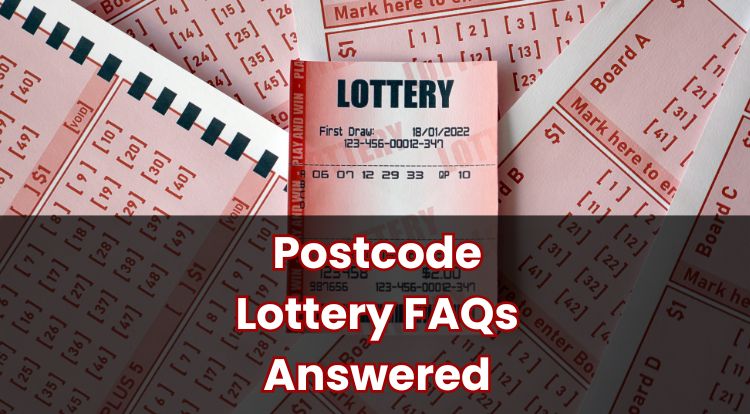Do Slot Machines Accept Credit or Debit Cards or Only Cash?
When it comes to paying at a slot machine, understanding your options is important, whether you’re visiting a casino or playing online. With contactless payments becoming a regular part of everyday life, it’s natural to wonder if slot machines still rely solely on cash or if card payments are now accepted.
In this blog post, we’ll take a closer look at how payments work both on the casino floor and online, why cash is still commonly used, and what the current UK regulations say. By the end, you’ll have a clearer idea of what to expect and which payment methods you can use.
Read on to learn more.
How Do Players Usually Pay at Slot Machines?
Most slot machines in physical casinos are set up to accept cash. Players typically insert banknotes to receive credits. Coins are less common today, as newer machines and processes have replaced them.
Many venues use a ticket-in, ticket-out system, often called TITO. After inserting money and playing, any remaining balance is printed as a barcoded ticket. That ticket can be taken to another machine to continue playing or redeemed at a cashier or kiosk for cash. The system speeds up play between machines and reduces the need to handle coins.
Online slot play is different. Payments are made through secure electronic methods. Depending on the casino, these may include debit cards, e-wallets, and bank transfers. Verification checks and payment authentication help keep these transactions secure.
That raises a familiar question: Where do credit cards fit in?
Do Slot Machines Take Credit Cards in the UK?
In the UK, slot machines do not accept credit cards. This applies both in physical casinos and on licensed gambling websites.
UK law, overseen by the UK Gambling Commission (UKGC), prohibits the use of credit cards for gambling. The rule is designed to reduce the chance of people gambling with borrowed money. On the casino floor, a device that looks like a card reader on a machine is used for TITO tickets, account cards, or venue-specific cashless systems, not for credit cards. Online operators must also block credit card payments.
So, if credit cards are out, what about debit cards?
Are Debit Cards Accepted on Slot Machines?
Most traditional slot machines do not take debit cards directly. Players cannot usually insert a card into the machine to buy credits. Instead, debit cards are used elsewhere in the venue. People withdraw cash at an ATM or visit a cashier or kiosk to load funds onto a casino account card or wallet, which then works with the machines through TITO.
Some casinos offer cashless play through a linked card or digital wallet. Money is loaded at a counter or kiosk, and the balance appears when the account card is tapped at a machine. This keeps the transaction away from the individual slot and within the venue’s payment system.
For online slots, debit cards are widely accepted for deposits and withdrawals, subject to security checks. Account histories and payment confirmations make it straightforward to see what has been paid in or out.
If debit cards are common in these ways, why does cash still play such a visible role on the floor?
Why Is Cash Still Commonly Used on Slot Machines?
Cash remains popular because it is quick, simple, and compatible with the majority of machines. Insert notes, receive credits, and play. There is no need to set up an account card or wait for a payment to process.
Many machines were designed with cash in mind, and that design still works reliably today. Cash also avoids sharing banking details at the machine. Some players prefer the clarity of handling physical notes, as it makes spending easy to see at a glance. There is also a practical angle: cash keeps the slot area running even if a card network is slow or a kiosk is busy.
Payment practices are influenced by regulations as well as ease of use, which brings us to the UK framework that underpins all of this.
Casino Payment Rules and UKGC Regulations
All licensed casinos in the UK must follow UKGC rules covering payments, player protection, and security. The credit card ban is one part of that. Operators are required to prevent credit card use for gambling, both online and on the premises.
Payments must be processed securely, and operators carry out checks to confirm identity and age before allowing play. Anti-money laundering controls apply to cash and electronic transactions, and venues monitor how TITO and redemption systems are used. Clear information about accepted payment methods and any fees must be available so people know how deposits, withdrawals, and redemptions work.
Responsible gambling tools are a standard feature online and increasingly visible in venues. Deposit limits, account summaries, and self-exclusion options help people manage their activity if they choose to use them. Together, these measures create a consistent, regulated environment across the UK.
If you are interested in playing slots, always do so with responsible gambling practices in mind and never wager more than you are willing to lose.
Play Slots Online at Red Casino
If you’re interested in trying online slots within a UK-licensed platform, we’ve designed Red Casino to offer a clear and straightforward experience. Together, we provide secure payment options like debit cards and bank transfers, with all the details about deposits, withdrawals, and processing times available right in your account.
Our selection includes both classic favourites and the latest releases, with each game page sharing key information on themes, features, and stake ranges. We’ve also built tools into your account to help you keep track of recent activity and personalise limits that fit your budget.
If you have any questions along the way, our support team is here to assist. If this sounds interesting to you, feel free to take your time to explore the slot games at Red Casino, knowing that we’re committed to providing a responsible environment for you to enjoy.
**The information provided in this blog is intended for educational purposes and should not be construed as betting advice or a guarantee of success. Always gamble responsibly.




